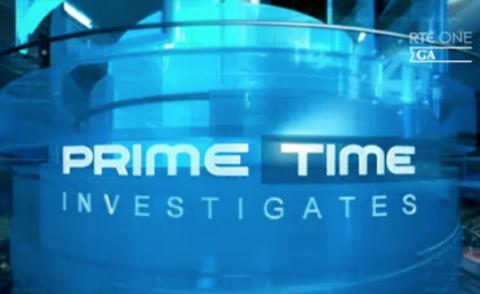BAI report incoherent, inconclusive, and incomplete

The BAI report into RTÉ’s libelling of Fr Kevin Reynolds is incoherent, inconclusive, and incomplete. There should be another inquiry into the inquiry – one that also looks at Pat Rabbitte’s botching of his role in the affair. By Vincent Browne.
The Broadcasting Authority of Ireland simply did not have the legal authority to conduct a comprehensive investigation into RTÉ’s culpability over the Kevin Reynolds affair.
It was precluded legally from inquiring into how RTÉ handled the issue after the programme had been broadcast. And the hubris, arrogance and sheer incompetence of RTÉ’s handling of the scandal following the broadcast is almost as egregious as the defamation itself. In those circumstances, Pat Rabbitte should have appreciated the BAI’s legal constraints and arranged an alternative investigatory process. He failed to do so.
But aside from that, a person was chosen to conduct the inquiry into what happened who had no experience in conducting such inquiries, certainly not in this jurisdiction, and this has led to a report that is incoherent, inconclusive in key areas and incomplete.
It would seem also that elementary fair procedures in the conduct of the inquiry were overlooked. For instance findings were made on issues that were not put to all the relevant people in interviews and there was no provision for witnesses to be cross-examined. In this regard, it would seem that Aoife Kavanagh was particularly disadvantaged and the implicit identification of her as the major culprit in all this was unfair and wrong.
Nevertheless what was revealed is a terrible indictment of RTÉ’s journalistic practices or at least in the area where, supposedly, RTÉ’s journalism excelled – if this is the centre of journalistic excellence, then what of the standards elsewhere in RTÉ?
One would have expected that the report would have started (after the usual preliminaries) with a chronology of the events that led up to the broadcast, and then a commentary on the recited facts, with reference to the statutory requirements related to current affairs broadcasting, RTÉ’s own guidelines and elementary journalistic standards. Concluding with conclusions and recommendations. The kind of structure analogous to that of the better court judgments but concise and intelligible.
Instead the report is a bit of a mishmash because it followed the cumbersome sequence of the terms of reference. Its author Anna Carragher referred to the tone and style of the programme, but then made no evaluation of these, which, in my opinion, were in themselves questionable by, for instance, the use of sound effects that were seriously prejudicial.
She made no specific comment on the casual way Prime Time Investigates approached a major story: no brief written at the outset on the issues to be addressed in the programme, the proofs that would be required to establish the main elements of the story, and the proposed structure of the programme.
She blithely accepted there was no commercial motivation in broadcasting the programme, without any apparent examination of whether the programme makers had “ratings” in their mind when they decided to go with the programme after the clearest warning signals had been waved about doing so.
For instance the church car park ambush of Kevin Reynolds was almost certainly motivated by commercial concerns (i.e. ratings). The justification proffered for the ambush and for the surreptitious filming clearly suggest this. Primarily, the justification had to do with a fear that Kevin Reynolds might have “disappeared” had an interview been sought in advance, inferring that the programme would have been compromised by that.
The only possible compromise would have been the drama of the programme, not its central message. Indeed its credibility might have been enhanced had the priest refused to give an interview. But drama (i.e. ratings) seemed to be the central concern. And in pursuit of ratings, the privacy of Kevin Reynolds was abused by our public service broadcaster, which has been subsidised to the tune of over €1 billion over the last seven years precisely to avoid such craven, tabloid, commercial stunts!
Then there is the failure to question RTÉ over its refusal to waive legal privilege on the legal advice it got from its own legal affairs department or at least report on the reasons for that refusal. Actually, how RTÉ could have sustained such a refusal is difficult to comprehend – refusing to disclose to its owners (i.e. the Irish public) legal advice that the owners paid for in the context of an investigation ordered by the proxy for the owners (i.e. the Government)! Just more arrogance and corporate hubris.
And finally, aside from the report, there is the conduct of the RTÉ board. How is it that immediately after the programme was broadcast it did not insist on an independent inquiry to assure itself of the authenticity of the allegation that a priest had fathered a child, when the priest was not just denying the allegation but offering to substantiate his denial via a paternity test? And even after it was appreciated that the programme had perpetrated an appalling libel, still no evidence the RTÉ board did anything. Then finally agreeing to two internal inquiries when it was obvious a full-blown independent inquiry was necessary.
Pat Rabbitte had doubts last Friday afternoon about the credibility of the RTÉ board. Yesterday, after meeting it for a few hours, he had recovered confidence since they said they wanted to ensure such practices would not happen again! Did he expect them to say otherwise? There should be another inquiry into the inquiry, and this should include an inquiry into Rabbitte’s botching of his role in the affair. {jathumbnailoff}
BAI report on Primetime Investigates: Mission to Prey (May 2012)

